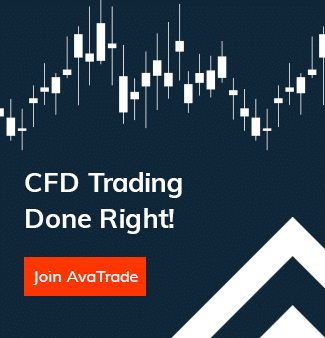
Sugar Trading via CFDs
With an astounding selection of over 100 instruments, Friedberg Direct gives you the option to trade many commodities. Use Friedberg Direct’s platforms powered by AvaTrade to trade Sugar CFDs, and see how sugar can sweeten not only your coffee, but also your account.
- Trade sugar with leverage
- Trade on an exclusive market 9.5 hours a day
- A unique and rarely traded commodity
- 24/5 technical support
- Trade with a Canadian regulated broker
- Both MT4 & MT5 trading platforms available
Start trading with Friedberg Direct and enjoy the benefits of trading with a regulated broker!
Sugar Trading Markets
Even though the sugar commodity is used around the world, its contract and price are determined in a few places. Sugar is traded on the Inter-Continental Exchange (ICE), the Kansai Commodities Exchange (KEX), the Brazilian Mercantile and Futures Exchange (BF&M), the National Commodities and Derivatives Exchange (NCDEX), the National Commodity Exchange Limited (NCEL), the Zhengzou Commodity Exchange (CZCE) and the Multi Commodity Exchange (MCX). There, sugar quotes are determined, and based on them traders perform their trades.
Unlike other instruments, sugar is not traded for days straight but only from 8.30 until 17.59 GMT. The months in which its quotes are changed are March, May, July, October and December. Its exchange symbol on the ICE US and on the MT4 platform is SUGAR#11.
What Influences the Price of Sugar
Unlike other commodities which are only used by individuals and specific industries, sugar is consumed all over the world and by most of the population. This has a major impact on the price of sugar:
- Supply and demand are, as usual, important to the process of determining the price of sugar. However, as mentioned, sugar is used by almost everyone, so more people have access and affect the price.
- Many bodies fight the use of sugar, as it is a cause of diabetes, obesity, teeth related issues and more. Countries that want to narrow sugar induced health problems can change their policy regarding sugar, which can bring about a massive change in its demand.
- A large portion of sugar comes from Europe. As a matter of fact, Europe is the second largest sugar exporter in the world. Should import and export rates change, it could affect the supply numbers which could lead to a massive change in sugar price.
- Today people are more and more aware of the dangers of sugar and look for alternatives, such as corn syrup and others. This could lead to fluctuations in sugar prices and more people looking for a new sweetener for their food and drinks.
Sugar CFD Trading
In order to understand sugar trading better, an example is in order. Say the price is $23.38 for each lbs., and the minimal position size must be of one hundred units, bringing it to $2,338 total.
However, as it is traded as a CFD, leveraged trading can be employed – $1 of the trader’s account for every $10 of the position’s value. That means the trader will need to invest $233.8 of his equity. Should the sugar price go up, the trader can benefit, and if it goes down, his investment fails.
Trading Sugar with Friedberg Direct
Sugar trading is a unique opportunity that can boost your trades. Like all agricultural commodities at Friedberg Direct, it is traded as a sugar CFDs and not the instrument itself. This opens up more opportunities and flexibility in the trades. If you want to add a cool and exclusive side to your trades – trading sugar with Friedberg Direct can be a good option for you!
Sugar Trading FAQs
- What influences the price of sugar?
Naturally, supply and demand are the most important determinates of sugar’s price, but what influences the supply and demand of sugar? Demand for sugar around the world from consumers has been dropping as health concerns cause consumers to look for alternatives to sugar. Offsetting that has seen an increased demand for biofuels, with some countries using sugar cane as the raw material for ethanol production. This demand can also be influenced by the price of oil. When oil prices drop, it is no longer competitive to produce ethanol using sugar cane, and the price of sugar is likely to fall. Of course, weather can also impact sugar prices, especially in Brazil and India, where roughly half the world’s sugar cane crops are grown.
- Should I trade sugar?
Sugar is an interesting commodity, and because there are so many uses for it, the price of sugar can become quite volatile. This is especially true whenever there is a disruption in supply from any of the major sugar cane producing countries. Monsoon season in India is likely to cause a spike in sugar prices when it is particularly bad. Higher oil prices might cause sugar prices to rise as Brazil’s sugar cane farmers change over to ethanol production rather than sugar. The smart trader can see these changes unfolding and trade sugar for their own gain.
- What is the best sugar trading strategy?
The best strategy to use when trading sugar is going to depend on whether the market is trending or if it is range-bound. In a trending market, the various oscillators are often best at locating potential zones where pullbacks could occur and areas where a trend could either continue or reverse. When the market is range-bound, it is usually best to locate the areas of support and resistance and trade based off of moves from those levels. That type of strategy can also reveal the beginning of a new trend when price breaks through support or resistance rather than bouncing from it.
These FAQs, comments/analysis do not take into consideration your individual personal circumstances and trading objectives. Therefore, they should not be considered as a personal recommendation or investment advice. They are intended for educational purposes only. Past performance is not indicative of future results. There is no guarantee that the contents or instructions will result in profits or not result in losses.







